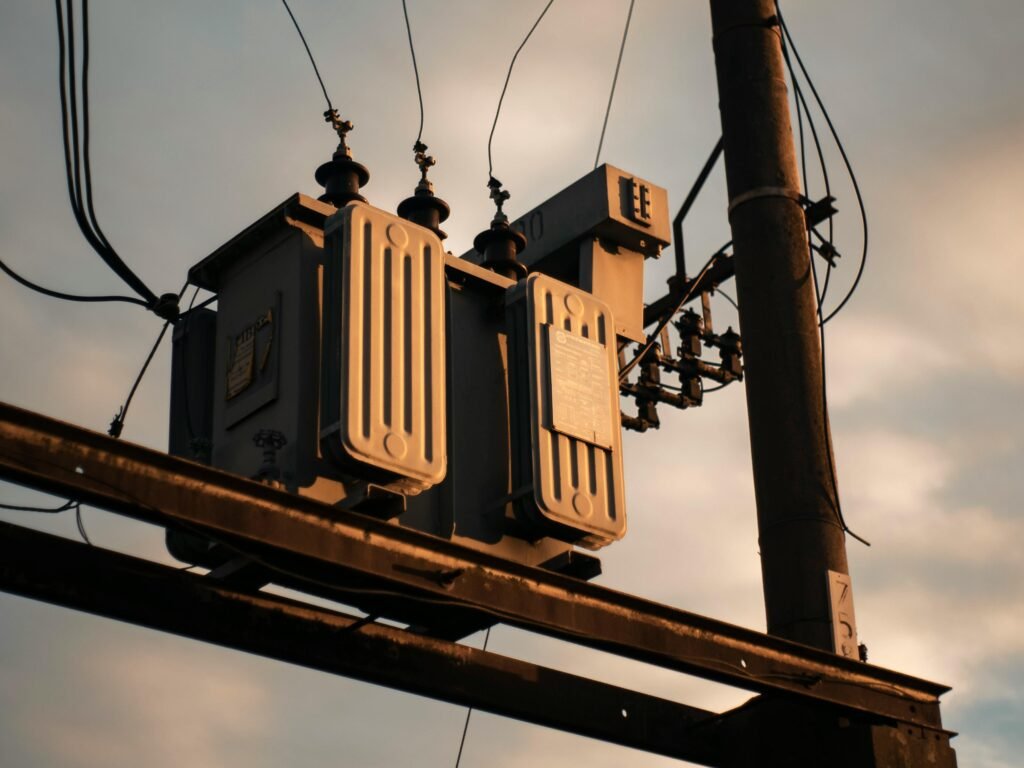Transformers are built to handle heavy electrical loads reliably, but even the most robust units can run into trouble — and overheating is one of the most common and dangerous issues. Whether it’s an industrial transformer running 24/7 or a backup unit in a commercial setting, overheating can lead to performance degradation, insulation failure, or even catastrophic failure if not addressed quickly.
In some cases, the smartest option isn’t repair — it’s to sell old transformers that have outlived their useful efficiency and replace them with modern, better-performing units.
At JJ TRANSFORMERS, we specialize in transformer diagnostics, repair, rewinding, and buy-back solutions. In this post, we’ll break down how to identify overheating issues, fix them, and when it makes financial sense to upgrade or sell used transformers.
Why Transformer Overheating Happens
Transformer overheating is typically caused by one or more of the following:
- Overloading: Operating above rated capacity causes excessive heat generation in windings and cores.
- Insufficient Cooling: Failed fans, blocked radiators, or aged coolant oil limit heat dissipation.
- Internal Faults: Short circuits, loose windings, or insulation failure cause localized heat build-up.
- Environmental Conditions: High ambient temperatures, poor ventilation, or sun exposure add to internal heating.
- Aging Components: Older units, especially ones over 20 years old, naturally run hotter due to wear and reduced efficiency.
If your equipment regularly overheats, it may be time to evaluate whether to service it — or sell old transformers and invest in more suitable solutions.
Step-by-Step: Troubleshooting Transformer Overheating
Step 1: Check Load Conditions
Start by measuring the transformer’s current load versus its rated capacity. Use clamp meters or load analyzers to determine whether your system is overloaded. If the transformer consistently operates above 85% capacity, overheating risks are high.
Tip: Consider redistributing the load or upgrading to a higher-rated unit. If your current equipment can’t keep up, buy used transformers at a lower cost as an interim solution.
Step 2: Inspect the Cooling System
For oil-filled transformers, check the oil levels, color, and temperature. Cloudy or dark oil suggests oxidation or contamination. For air-cooled units, inspect fans and ensure airflow isn’t obstructed.
Common issues:
- Oil pumps or fans not working
- Dirty or clogged radiators
- Blocked air inlets/outlets
- Leaks that lower coolant levels
If these components are beyond repair, it might be time to sell old transformers and invest in newer models with efficient cooling systems.
Step 3: Evaluate Ambient Conditions
Transformers located outdoors or in poorly ventilated indoor environments are more likely to overheat. Check the installation site:
- Is there enough airflow?
- Are heat-generating devices nearby?
- Is the transformer exposed to direct sunlight?
Consider relocating the unit or shielding it from heat exposure to mitigate environmental stress. In some cases, if your unit has sustained heat damage due to years of poor placement, it’s smarter to sell your surplus and start fresh with a properly installed replacement.
Step 4: Perform Thermographic Scanning
Infrared scanning helps detect hot spots before they cause major failures. Hot spots often indicate:
- Loose electrical connections
- Coil damage
- Unbalanced loads
- Faulty bushings or tap changers
At JJ TRANSFORMERS, we use thermographic imaging as part of our transformer maintenance services to identify issues early and avoid expensive breakdowns.
Step 5: Oil Analysis and Insulation Testing
For oil-immersed transformers, Dissolved Gas Analysis (DGA) reveals thermal and electrical faults inside. For dry-type units, insulation resistance tests highlight degrading dielectric materials.
If the oil or insulation system is compromised, the transformer may be unsafe to operate. In such cases, the best option is often to sell transformers for parts or recycling and invest in a refurbished or surplus unit.
When to Sell Instead of Repair
Here are signs it’s time to sell old transformers instead of spending more on repairs:
- Frequent overheating despite maintenance
- Inadequate capacity for growing power demand
- Obsolete or unsupported design
- Expired insulation or corroded internal components
- Rising maintenance costs exceeding replacement value
At JJ TRANSFORMERS, we buy back units in various conditions and help you upgrade with surplus transformers or rewound models to reduce cost and downtime.
Prevention: Keeping Transformers Cool
To avoid future overheating, we recommend:
- Regular maintenance and inspection
- Timely oil changes or refills
- Load balancing to prevent stress
- Upgraded fans or heat exchangers
- Environmental optimization of the transformer location
And remember — no transformer lasts forever. Proactively monitoring your equipment and knowing when to sell old transformers can protect both your budget and your business continuity.
Final Thoughts
Overheating is a serious transformer issue — but it doesn’t have to be a crisis. With the right troubleshooting steps and proactive care, many transformers can be restored to efficient operation. But for older or repeatedly failing units, the better solution may be to sell old transformers and replace them with high-performing, tested alternatives.
At JJ TRANSFORMERS, we provide diagnostics, repair, rewinding, and buy-back services to keep your operations safe and efficient.
Is overheating putting your transformer at risk?
Let us help you troubleshoot it — or sell your transformer for a fair market price and upgrade to a reliable unit today.



